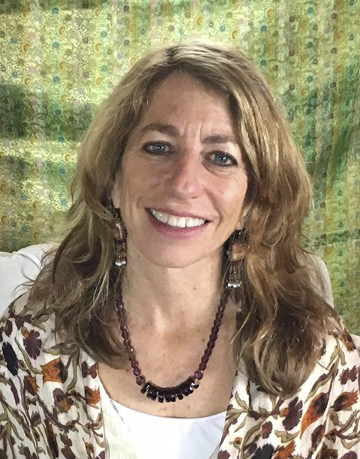With an emphatic and delicate view toward religion and spirituality, author Mirabai Starr plans to enhance the view of “Dark Night of the Soul,” a poem by 16th-century Spanish mystic and priest St. John of the Cross.
Starr will give her analysis of the poem in her lecture, titled “Dark Nights of Our Souls: The Transformational Power of Spiritual Crisis,” at 2 p.m. Tuesday, Aug. 2 in the Hall of Philosophy, adding to the Interfaith Lecture Series Week Six theme, “Embracing the Dark: Fertile Soul Time.”

“What I’m looking at is the classic teaching of the ‘Dark Night of the Soul,’ ” Starr said. “But, I am claiming it through what I would call a more feminist lens.”
Traditionally interpreted, the poem moves through periods throughout someone’s spiritual life. Starr said the classical perspective is that when everything in someone’s spiritual path “dries up” and people are no longer excited, their belief system unravels.
“What’s happening is we’re being stripped of our attachments, and our concepts of God, our attachments to the ways spiritual life is supposed to feel ecstatic or blissful,” Starr said. “… (And) all of our concepts about God and reality no longer make any sense to us.”
This idea of being stripped of spiritual attachments may make some feel like they’re doing something wrong, or experience the anxiety-inducing feeling that there’s going to be bad news. But, Starr said when people feel “spiritually naked,” they are prepared for a direct encounter with God.
“It’s about an inner state in the spiritual crisis,” Starr said. “It may be invisible to anyone else from the outside, but it’s really a beautiful, transformative portal.”
She wants her audience to realize that difficult experiences and feelings toward current events — climate change, women’s rights, unraveling democracy — are opportunities for this transformative experience to make people into “compassionate agents of change in the world.”
Incorporating the empathy of the human experience into her feminine perspective, Starr said people need to welcome these brokenhearted feelings to become more in tune with the world. She said that the masculine version would be about rising above, rather than letting the feelings become one with the soul.
“The hallmark of John’s teaching is about the power of radical not knowing, complete unknowing, and that is my way,” Starr said.
Starr said it is important to both experience the world from a place of unknowing, and feel a sense of not knowing in “the midst of the world, so that we enter the suffering with our hearts open.”
Not knowing is a cornerstone of accepting the reality of the spiritual world, she said. There must be a deep sense of surrendering control and allowing for innate curiosity; then the relationship between those two can be at the center of change.
“It’s a path of fire and transformation and that is challenging,” Starr said. “It’s challenging for me to walk it, and it’s challenging for me to invite other people to walk that path with me.”
Starr translated “Dark Night of the Soul” from Spanish to English, and said her translation is the most contemporary version in existence. She has studied Buddhism, Hinduism and Judaism, and is unaffiliated with the Catholic Church, so her translation of the poem brings “this classic work to the 21st century in a brilliant and beautiful rendering.”
Starr said she hopes her audience will gain a renewed sense of hope and meaning. She wants them to realize there is beauty in hopeless times.
“When I share these teachings and I reclaim them through a feminine, relational, truth-telling lens, I see people change. I see hearts open,” Starr said. “I see people finding their own unique way to step up and (challenge) themselves as instruments in this world.”




